What you can track using fynk’s audit trail
When you work with contracts, knowing exactly what happened to a document and when is essential. fynk automatically tracks every meaningful action across the entire document lifecycle so you never have to guess how a file was created, who touched it, what changed or why it moved forward. This overview breaks down all the data fynk logs behind the scenes, giving you complete visibility into document activity, collaboration, permissions, negotiations, signing, and more.
- What is an audit trail in fynk
- Which events are is by fynk’s audit trail
- 1. Document creation
- 2. Document stages and notifications
- 3. Working copies and published changes
- 4. Document users and access permissions
- 5. Contract parties and party details
- 6. Dynamic fields and structured data
- 7. Signing activity and signing phases
- 8. Comments and discussions
- 9. Attachments and supporting files
- 10. Stored files and file updates
- 11. Proposals and negotiation outcomes
- 12. Document content and PDF changes
- 13. Document lifecycle events
- Document audit trail reporting
- Why this level of detail matters
- Ready to bring clarity to your contracts
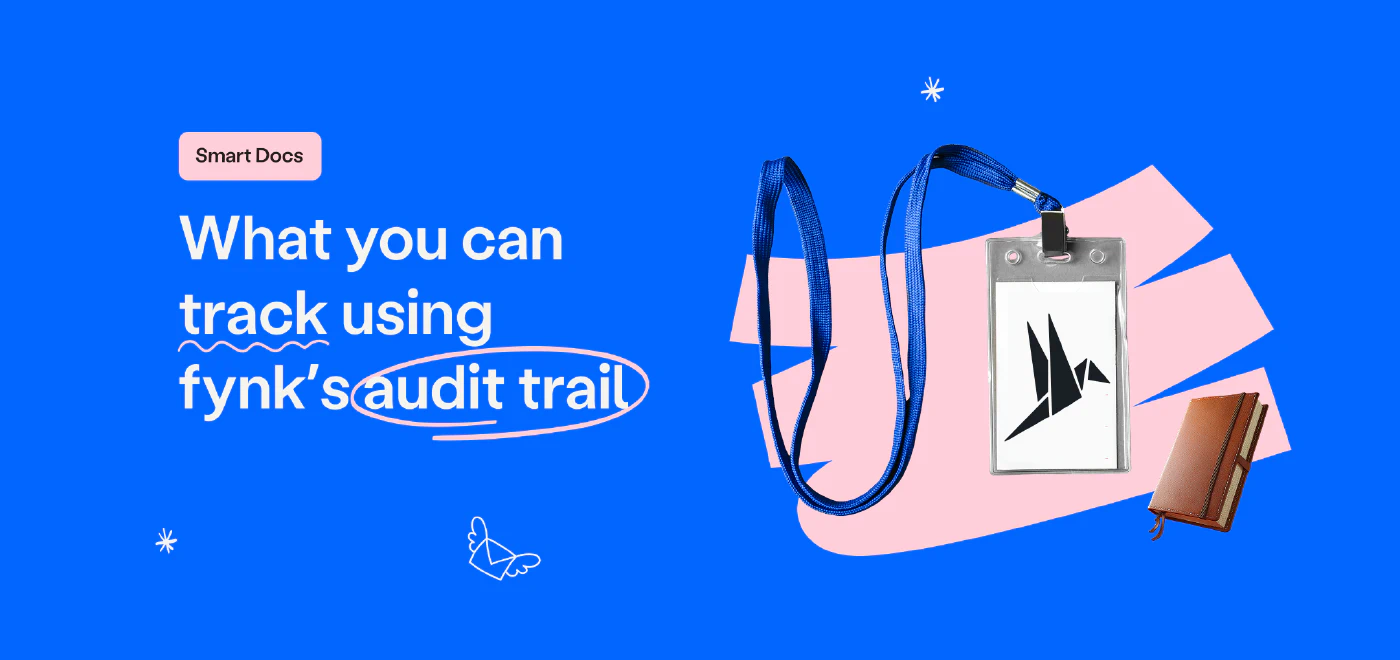
What is an audit trail in fynk
In fynk an audit trail is a complete, time-stamped history of every meaningful event that happens to a document. It tracks all important events in a legal document such as who did what, when it happened, and how the document changed over time. Everything is recorded automatically, so you do not have to track anything manually.
The feature works hand in hand with fynk’s version control. Version control stores all content changes as separate versions. The audit trail stores the actions around those versions, such as edits, comments, approvals, signings, attachments, and user access. Together, they give you a full and trustworthy record of the entire document lifecycle.
What else fynk’s audit trail includes
fynk adds several features that make your audit history clearer and easier to use:
- Integrated version control: Every edit becomes its own version, and the audit trail links each version to the action that created it. You can compare, track and restore changes instantly.
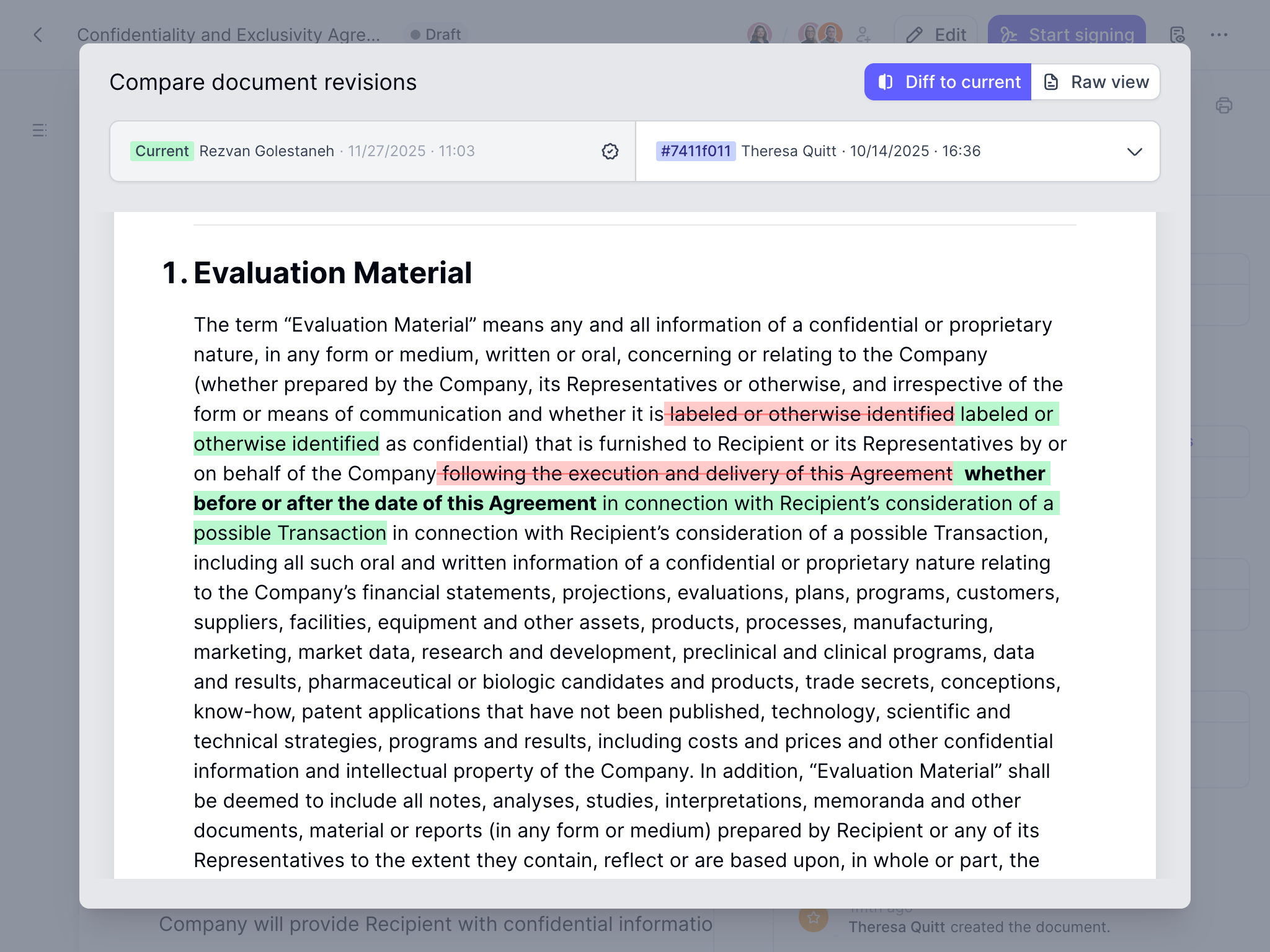


Version control in fynk
- User-grouped access activity: You can filter the access log by user to easily see how many times a user access the document.
- Full signature history: Every signature event is logged, from the start of the signing phase to the final signature, giving you a transparent and legally reliable record.
- Printable and exportable logs: Whenever you need to share or archive the history, you can export or print the entire audit trail in a clean, review-ready PDF format.
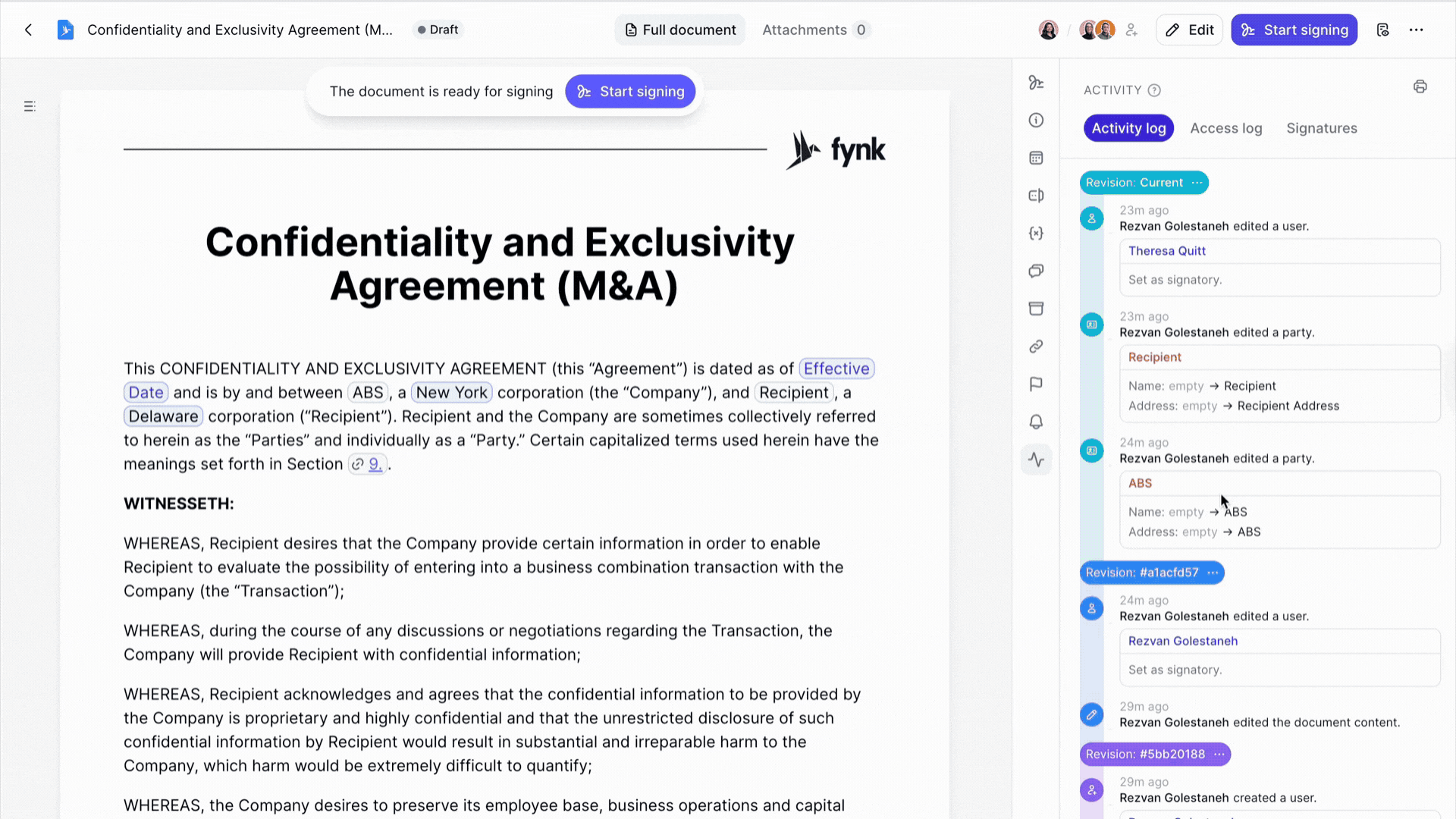


Activity log (Audit trail) in fynk app
Which events are is by fynk’s audit trail
1. Document creation
fynk captures where a document came from so you always know its origin.
Examples include:
- Created from a template
- Created from scratch
- Generated through an integration
- Imported as a PDF
- Added during onboarding flows
This helps you understand how each document entered your workflow.
2. Document stages and notifications
fynk records every stage the document moves through and every notification that is sent to users. This includes both workflow transitions and invitations. The audit trail gives you full visibility into who was invited, who was asked to sign and when the document progressed in the process.
The types of events recorded here include:
- Movement between document stages such as draft, review, signing and completed
- When someone is invited to join the document as a collaborator or viewer
- When someone is invited as a CC recipient
- When the document enters a signing phase
- When a signer is notified that their signature is required
- When follow-up reminders or alerts are sent for pending actions
These notification logs help you see the exact moment a user was pulled into the process and what type of participation they were asked for. They also show how often signers or collaborators were reminded to take action.
If you ever need to understand why a document stalled or who was responsible for the next step, this part of the audit trail gives you the full communication history.
3. Working copies and published changes
Working copies allow users to make edits separately before publishing them. The audit trail shows:
- When a working copy was created
- Who created it
- When the changes were published
- How those changes impacted the main document
This preserves collaboration history and protects the original document.
4. Document users and access permissions
fynk tracks every update related to document access. This includes:
- When a new user is added
- When user roles or permissions change
- When a user is removed
This gives you a complete history of who had access at any point in time.
5. Contract parties and party details
Whenever contract party information changes fynk logs it. You will see:
- When a party was added
- When party details were edited
- When a party was removed
This is especially useful in negotiations where legal and company data often changes.
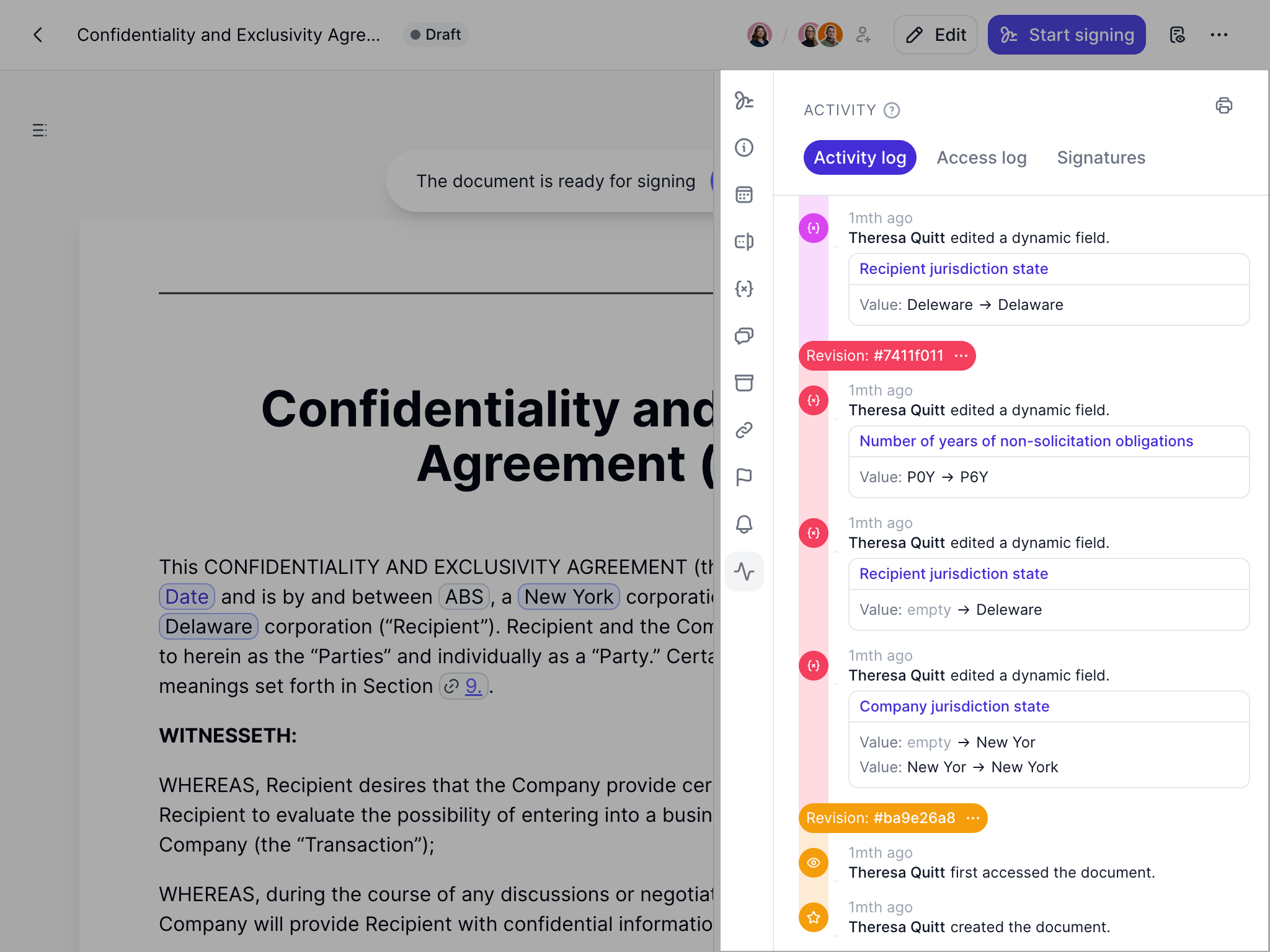


Activity log events in fynk app
6. Dynamic fields and structured data
Dynamic fields are key for automation and reporting. The audit trail records:
- When a dynamic field was created
- When a field value was changed
- When a field was deleted
This lets you track how important contract data such as pricing, dates or terms evolved.
7. Signing activity and signing phases
You can see the full signing journey of your document. fynk logs:
- When a signer completes their signature
- When a signing phase begins
- When a signing phase is reversed or restarted
This ensures every signing action is clear, transparent and legally documented.
8. Comments and discussions
fynk captures the entire discussion history inside a document. This includes:
- When a new comment is added
- When a comment is edited
- When a comment is resolved
This gives you a transparent record of all conversations and decisions made during drafting and review.
9. Attachments and supporting files
If your document includes supporting materials, the audit trail records all actions related to them. You will see:
- When an attachment is added
- When an attachment is updated or replaced
- When an attachment is removed
This is especially important for agreements that need proofs, certificates or additional documents.
10. Stored files and file updates
Beyond attachments fynk keeps track of all stored files associated with the document. This includes:
- File creation events
- Updates or replacements
- File removal
This creates a complete file history for each document, which is useful for audit and compliance scenarios.
11. Proposals and negotiation outcomes
If your workflow uses proposals or structured negotiation steps, fynk logs all proposal activity. For example:
- When a proposal or offer is created
- When it is accepted
- When it is rejected
This provides clarity on how decisions evolved during commercial or legal negotiations.
12. Document content and PDF changes
fynk also records changes made to the document content itself as well as updates to the generated PDF. The audit trail logs:
- Content edits to the document body
- Header and footer changes
- Updates to the generated PDF
- When a PDF is decrypted or flattened
This ensures transparency around both the editable content and the final exported output.
13. Document lifecycle events
Finally fynk gives you full visibility into the entire lifecycle of the document. You can see:
- When a document is updated
- When it is deleted
- When it is restored
- When it is archived
This helps you understand the complete history from creation to final storage.
Document audit trail reporting
Document audit trail reporting is the ability to generate a clear, shareable report of every action recorded in a document’s audit trail. It takes all the tracked events such as edits, views, comments, signature steps, version changes and permission updates and compiles them into a readable format.
In fynk you can export or print this report, including as a PDF, so you have a complete record of the document’s history for audits, reviews, compliance checks or internal documentation.
Why this level of detail matters
This type of visibility is essential when you manage legal or business-critical documents. A complete audit trail helps you:
- Prove who did what at any moment
- Understand how a contract evolved
- Maintain compliance and internal accountability
- Resolve disputes faster
- Strengthen operational trust
- Meet audit requirements without extra work
- Protect your team from unnecessary risk
Without a reliable audit trail, these tasks become guesswork. With fynk, they become effortless.
Ready to bring clarity to your contracts
If you want to experience contract management with complete visibility, fynk gives you everything you need in one place. You get automatic audit trails, version history, structured data fields, signing logs and secure lifecycle control. It is the simplest way to always stay informed and always stay compliant.
Searching for a contract management solution?
Find out how fynk can help you close deals faster and simplify your eSigning process – request a demo to see it in action.
Please keep in mind that none of the content on our blog should be considered legal advice. We understand the complexities and nuances of legal matters, and as much as we strive to ensure our information is accurate and useful, it cannot replace the personalized advice of a qualified legal professional.

Table of contents
- What is an audit trail in fynk
- Which events are is by fynk’s audit trail
- 1. Document creation
- 2. Document stages and notifications
- 3. Working copies and published changes
- 4. Document users and access permissions
- 5. Contract parties and party details
- 6. Dynamic fields and structured data
- 7. Signing activity and signing phases
- 8. Comments and discussions
- 9. Attachments and supporting files
- 10. Stored files and file updates
- 11. Proposals and negotiation outcomes
- 12. Document content and PDF changes
- 13. Document lifecycle events
- Document audit trail reporting
- Why this level of detail matters
- Ready to bring clarity to your contracts
Want product news and updates? Sign up for our newsletter.
Other posts in Smart Docs

What you can track using fynk’s audit trail
When you work with contracts, knowing exactly what happened to a document and when is essential. fynk …

What is contract metadata and how it works
Contract metadata is the structured information that describes a contract, like dates, parties, values, …
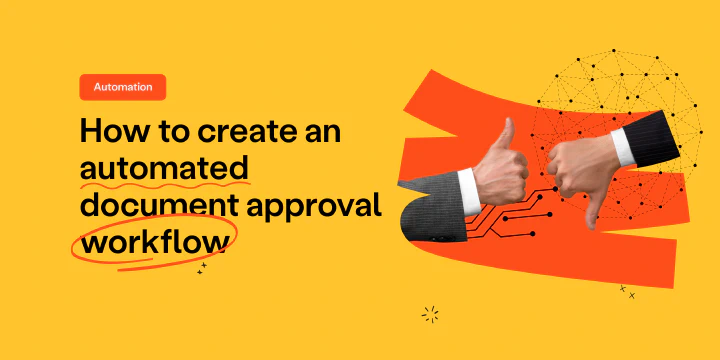
How to create an automated document approval workflow?
An automated document approval workflow helps your team move faster, stay organized, and avoid the delays and …
Other posts in Fynk

What you can track using fynk’s audit trail
When you work with contracts, knowing exactly what happened to a document and when is essential. fynk …

How to create an automated document approval workflow?
An automated document approval workflow helps your team move faster, stay organized, and avoid the delays and …
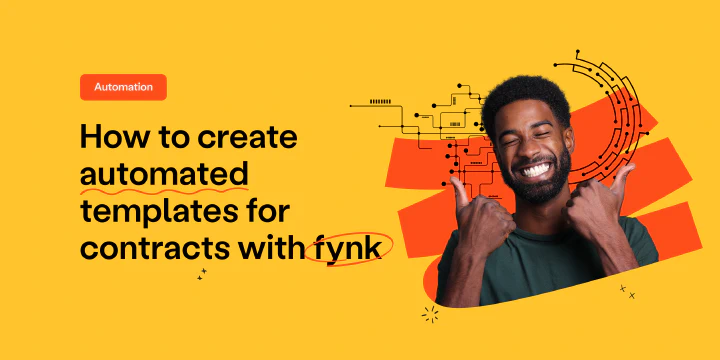
How to create automated templates for contracts with fynk
Automated templates let you create contracts faster and with fewer mistakes by using dynamic fields, …
Contracts can be enjoyable. Get started with fynk today.
Companies using fynk's contract management software get work done faster than ever before. Ready to give valuable time back to your team?
Schedule demo

